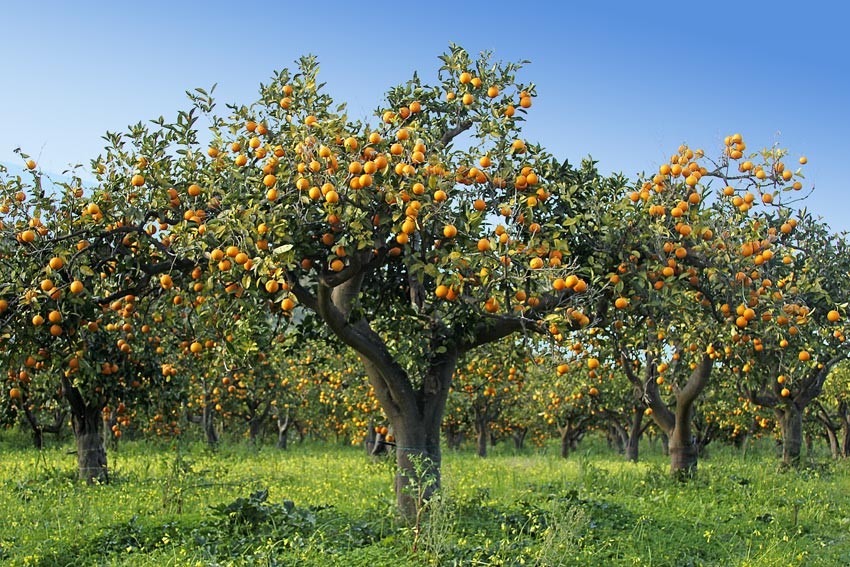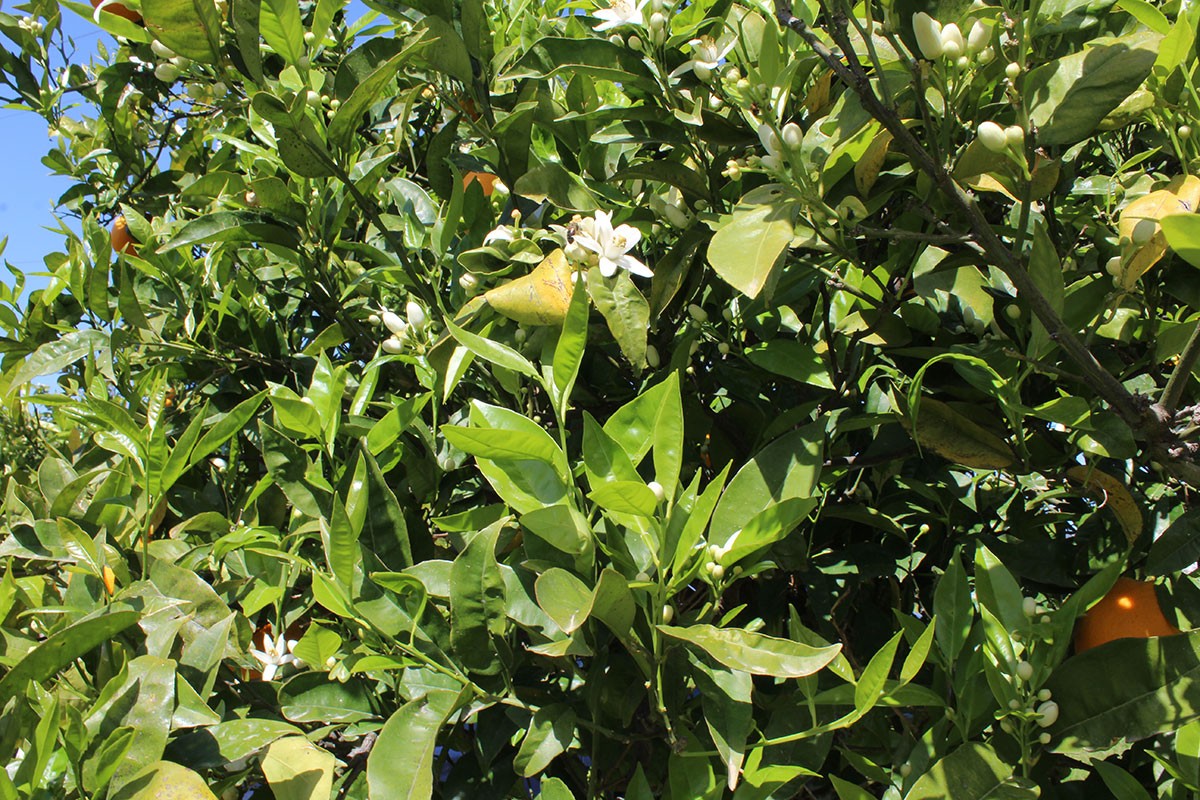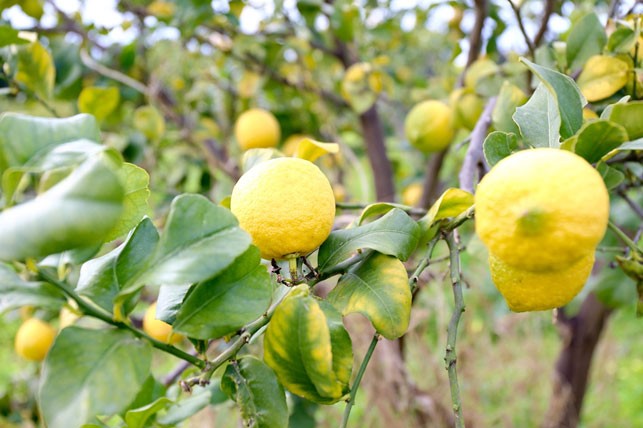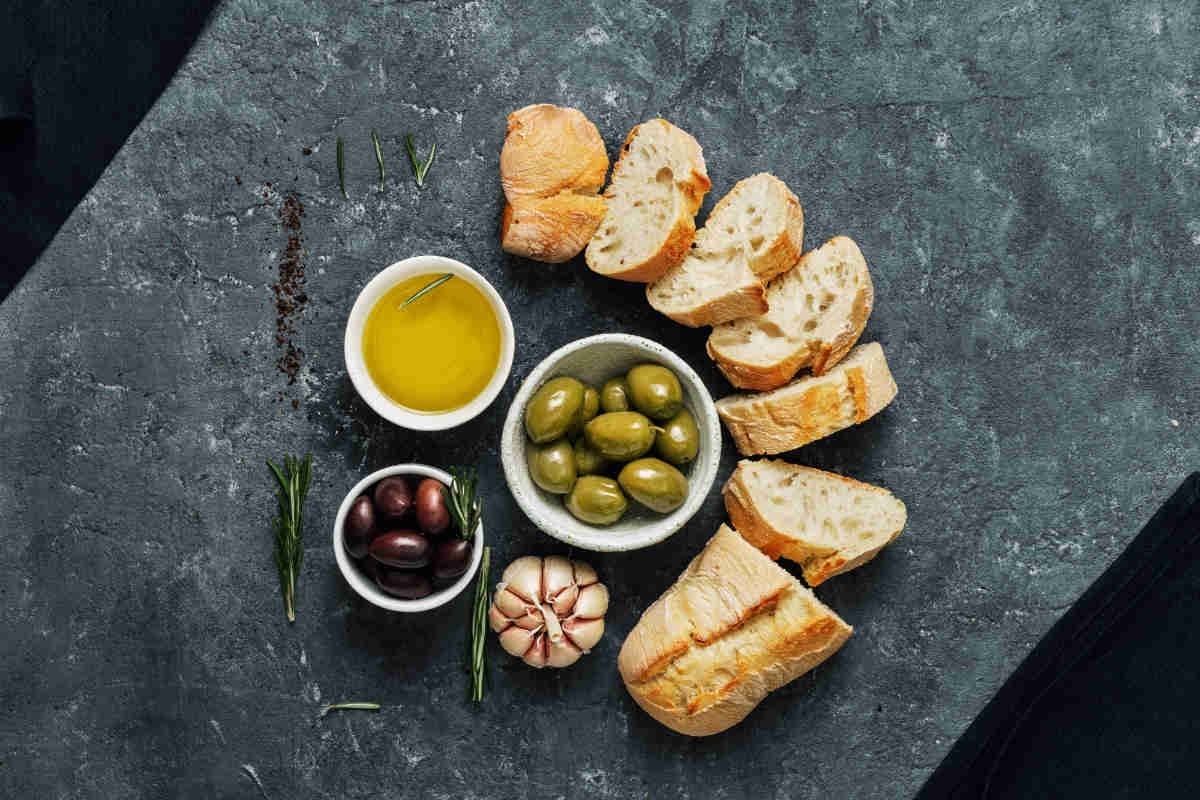Discovering olive oil: properties and benefits
Olive oil is now one of the basic ingredients of the Mediterranean diet but its use dates back as far as 4,000 BC. Countries such as Armenia, Palestine and India used it to moisturise the skin and take as a medicine. Already the Babylonians regulated its production and trade while the Romans imposed taxes to be paid in the form of olive oil. Since 1,400 AD, olive oil has been known as one of the Italian products par excellence and has become the undisputed basis of the typical Mediterranean diet. Olive oil is an all-round food, remarkably versatile and usable raw or in cooking, from appetisers to dessert, with a positive result. It is not, therefore, a simple condiment but an ingredient rich in flavour, which influences the very perception of the food it is accompanied with. There are three distinctions of olive oils: light fruity oils, medium fruity oils and intense fruity oils. The softer and sweeter the first, the tastier and slightly pungent the last. The green oil is younger while the yellow one is already ripe and rich in carotenes, pigments that have an antioxidant action. Olive oil easily absorbs odours and is altered by light and heat; for this reason it is advisable to keep it away from detergents or rooms open to smoke, at a temperature of around 15°C and in a dark container that protects it from direct light. When we talk about olive oil we often refer to the definition "extra virgin": known since ancient times, extra virgin olive oil is the most suitable fat for human consumption because it is the only product exclusively by squeezing the olives, without chemical additions or industrial interventions. SANGASPANO is an organic extra virgin olive oil. This type of production process allows the oil to keep intact all the properties of which it is naturally rich. Moreover, thanks to its high digestibility rate, higher than that of all seed oils, butter and lard, the use of extra virgin olive oil is recommended during the weaning of newborns. The benefits of olive oil for our body Olive oil offers many beneficial properties for our health: first of all, it is particularly rich in monounsaturated fatty acids, which prevent the appearance of cardiovascular disorders, and poor in saturated fatty acids, responsible for the occlusion of the arteries. Olive oil contains oleic acid, a monounsaturated fat that can regulate blood cholesterol levels: it reduces the percentage of "bad" cholesterol (LDL) compared to "good" cholesterol (HDL). A constant and controlled consumption of olive oil, and therefore oleic acid, reduces the risk of heart attacks, strokes and thrombosis, contributing to the health of the arteries. If you add that olive oil contributes to the health of the heart and bone structure, you can easily conclude that it is a valuable ally for sportsmen and sportswomen at all levels. Organic Extra virgin Olive oil, like Sangaspano, also contains polyphenols, antioxidants with incredible properties: they are able to protect the integrity of cell membranes, defending them from the formation of tumours and counteracting the alteration of cognitive functions caused by aging cells. This means that olive oil also preserves memory, protecting the brain from Alzheimer's: according to a study published in Annals of Clinical and Translational Neurology, the consumption of extra virgin olive oil protects memory and the ability to learn and reduces the formation of amyloid-beta plaques and neurofibrillary tangles in the brain, the classic markers of Alzheimer's. It seems that olive oil activates a process known as "autophagy", which allows the elimination of intracellular toxins and the preservation of memory and synaptic integrity. Olive oil: from health to beauty Extra virgin olive oil is also a natural source of Vitamin E, universally known as the "beauty vitamin"because it protects oxidisable fats from the formation of free radicals. Being a mild vasodilator, Vitamin E strengthens the walls of the capillaries and reduces the risk of thrombus; it also regulates the production of male and female sex hormones and increases the levels of "good" cholesterol (HDL). To conclude the overview of the properties and benefits of olive oil, it should be remembered that this food abounds in squalene, a substance that would be very effective in countering the onset of skin cancer. In Italy, in fact, where olive oil is the basis of the daily diet and is therefore consumed in large quantities, life expectancy is higher than in northern European countries, where fats of animal origin tend to be consumed. It offers soothing properties that make it perfect against redness and irritation, even for the most sensitive skin; it is also an effective antioxidant and is therefore an important ally against the effects of skin aging. Olive oil nourishes the skin in depth and regulates the levels of hydration, which is why it is also recommended as a natural remedy against eczema, psoriasis and herpes. The properties of olive oil do not stop here: ideal for scalp irritation and for the care of dull or damaged hair, it is often suggested as an ingredient in soothing or nourishing masks to be applied to the hair. Finally, olive oil is recommended as a remedy for brittle nails and stains on the skin of the hands, often due to aging or excessive exposure to sunlight. Ideal when combined with other ingredients, from lavender essential oil to shea butter and Jojoba wax, olive oil is a valuable beauty ally to use at home.
Related posts
 ambience
Sangaspano adopts an organic, sustainable and biodynamic agriculture
ambience
Sangaspano adopts an organic, sustainable and biodynamic agriculture
 ambience
IN ITALY GOODBYE TO OVER 20 MILLION CITRUS TREES!
ambience
IN ITALY GOODBYE TO OVER 20 MILLION CITRUS TREES!
 ambience
In 2024 the climate crisis bends Italian beekeeping
ambience
In 2024 the climate crisis bends Italian beekeeping
 ambience
Wellness
Topical
Goodbye Italian lemons. The yellow fruits at risk, in 30 years decreased production by 40%.
ambience
Wellness
Topical
Goodbye Italian lemons. The yellow fruits at risk, in 30 years decreased production by 40%.
 ambience
Wellness
Topical
Planting new trees can help us fight the global boil. Greenery around a building can reduce air conditioning by 50%.
ambience
Wellness
Topical
Planting new trees can help us fight the global boil. Greenery around a building can reduce air conditioning by 50%.
























Leave a comment